#of beren and lúthien
Text

Sketch of a scene from Beren and Lúthien!
Any ideas or advice to improve would help pls! Looking for more Silm addicts lmfao
I want to go for a storybook style composition and put text in the negative space and yes Melkor is supposed to be that big, I want him to be lmao
edit: its finished!
#the silmarillion#melkor#of beren and lúthien#quenta silmarillion#morgoth#morgoth bauglir#tolkien#tolkien art#lotr art#silmarillion art#annatar made art
77 notes
·
View notes
Text
Analysis Teaser #8
(no-context stills for Chapter 6)
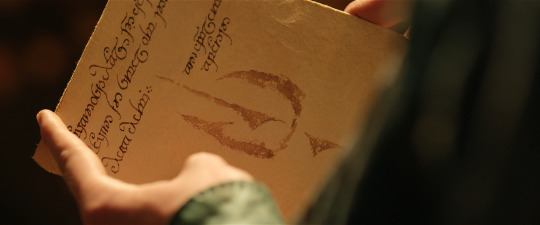
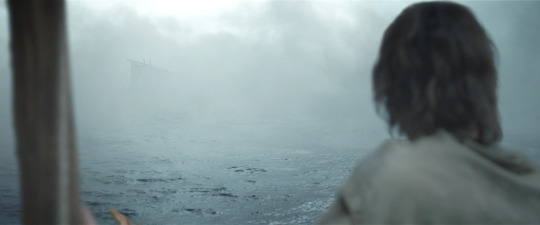


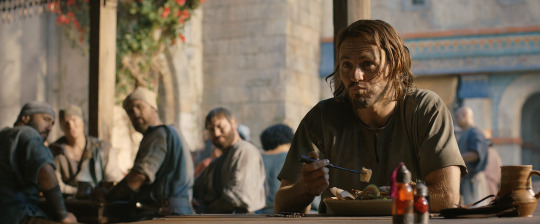
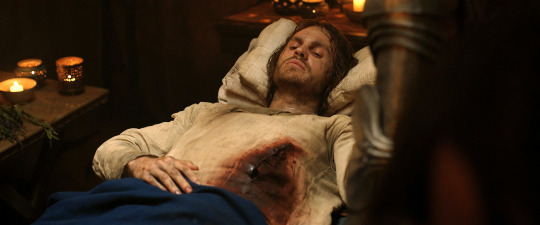

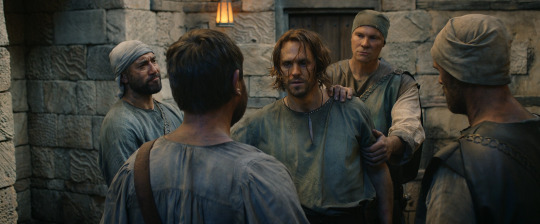
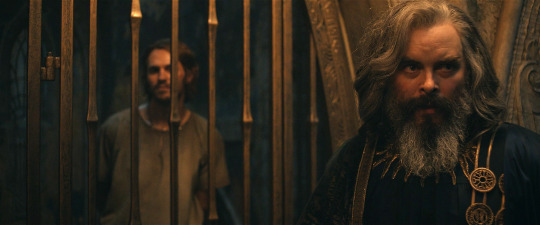
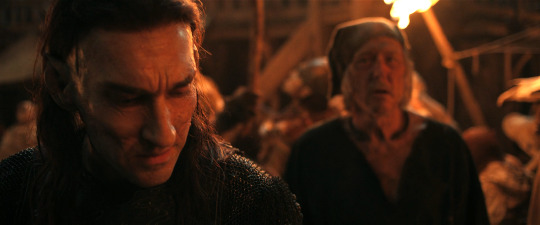
[Teaser #9]
[back to Teaser #7]
[the Blog]
#tropedit#halbrand#ropedit#adar#rings of power#“this mark's very existence proves sauron escaped.” -galadriel#a paragraph from#the silmarillion#of beren and lúthien#pharazon#sauron#waldreg#stills#myedit#chapter 6
18 notes
·
View notes
Text
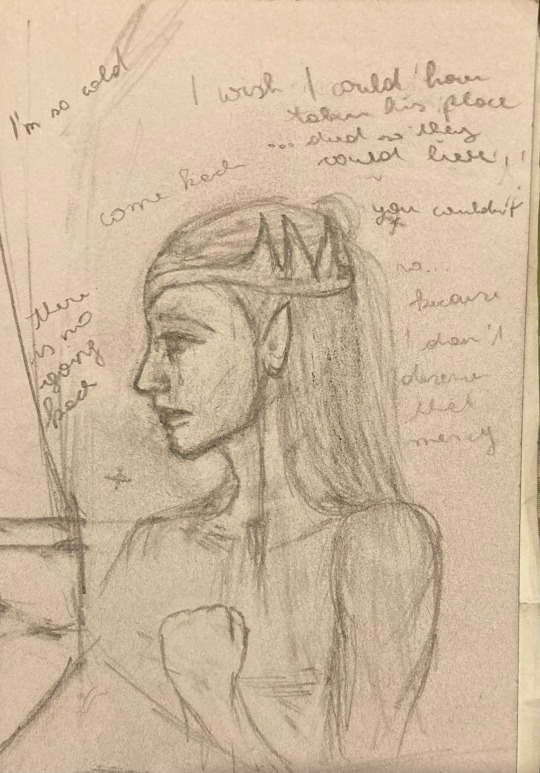
Been slipping from meltdown into shutdown and back into meltdown (I’m autistic and mom of four of whom at least three are as well) this past week. And THAT’s what my brain gets up to in the middle of the night. Ah well.
#elu thingol#silmarillion#fanart#winter#survivor’s guilt#of beren and lúthien#grief#not sure who the voice from the off is#that’s really what depression looks like at times
5 notes
·
View notes
Text
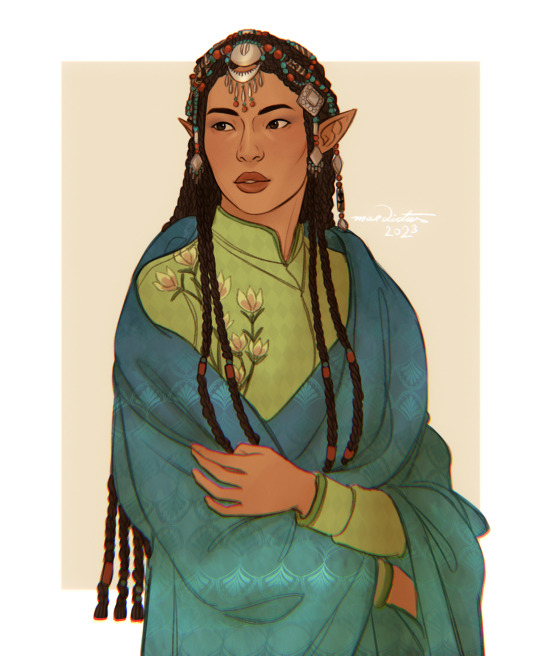

More drawings of east asian Beren and Lúthien
#lúthien is inspired by tibetan traditional costumes#and beren is slightly inspired by mongolian hunters#still love drawing these two#beren erchamion#luthien#silmarillion#tolkien#my art#artists on tumblr#lord of the rings#fantasy#art
3K notes
·
View notes
Text


Lúthien, little lover & elven jocks
By Cami | morchlav
#beren and lúthien#tolkien#the silmarillion#lotr#art#fan art#fantasy#character design#lúthien#luthien#luthien tinuviel#beren and luthien#beren erchamion#huan#celegorm#curufin
2K notes
·
View notes
Photo


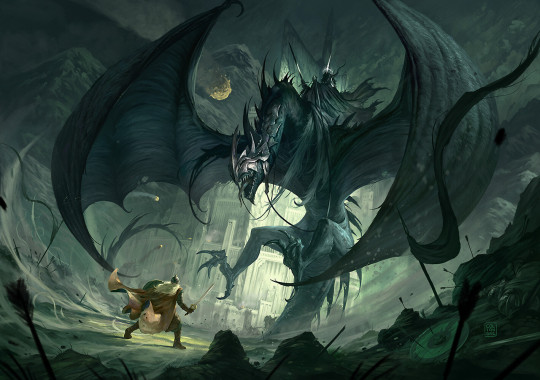
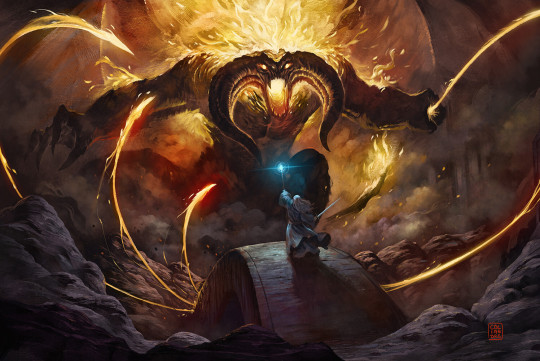
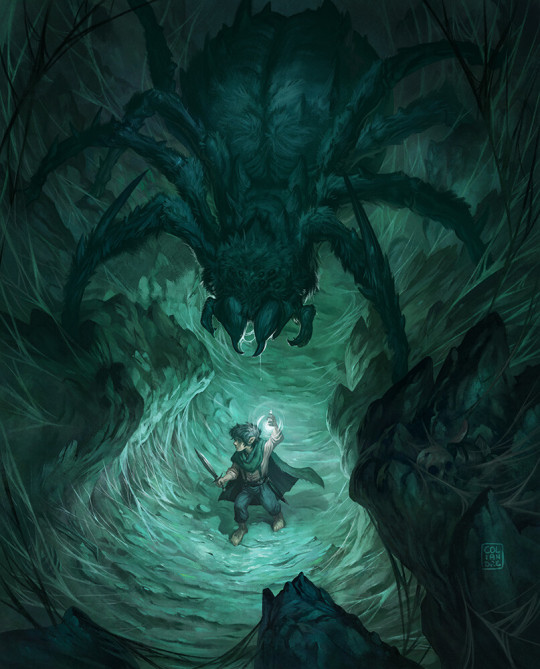
Fan art by Coliandre
#art#digital art#Illustration#fan art#lotr#Beren and Lúthien#the silmarillion#tolkien#coliandre#Xavier Collette
1K notes
·
View notes
Text
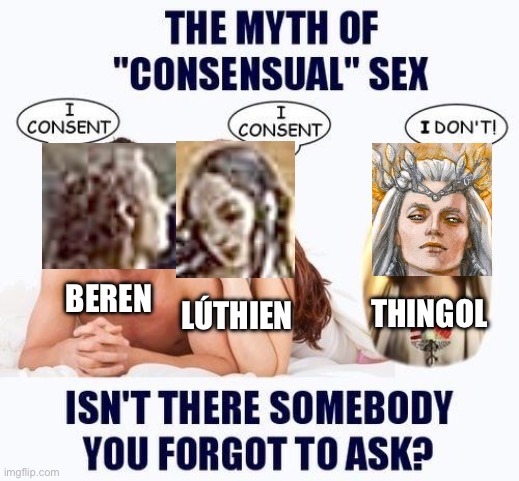
#beren and luthien#beren erchamion#lúthien tinúviel#thingol#silmarillion#the silmarillion#tolkien#jrr tolkien#lord of the rings#lotr#lotr rop#lotr trop#fantasy#the hobbit#lotr memes#tolkien memes#lord of the rings meme
85 notes
·
View notes
Text
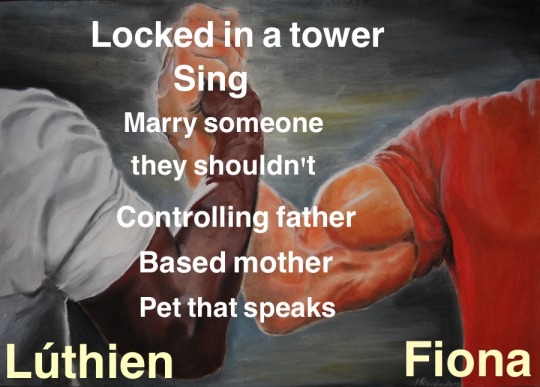
Nobody told me Beren and Lúthien was based on Shrek.
#yes i called donkey a pet#tolkien#shrek#shitpost#incorrect tolkien quotes#incorrect silmarillion quotes#beren and lúthien#fiona#silmarillion#crack#meme#good for us huan didnt have babies with one of melkor's lady dragons#oromë would be proud#doriath#far far away
116 notes
·
View notes
Text
I’ve read some criticisms that Beren doesn’t listen to Lúthien and keeps trying to leave her behind even when she’s proven herself capable … and I’m like … are you even aware of Beren’s life story?
This man has lost everything he’s ever loved.
He had to part ways with his mother and sister for their safety, and then came back from a hunt to find his entire clan brutally murdered, including his father. He tracked down those responsible to take revenge and get his father’s ring back, because what else could he do? What purpose did he have without his family and his comrades? What was the use when the enemy was hunting him down 24/7? While his survival instincts won out, he was still a man who had no hope, afraid of love and attachment after what he’d lost, completely alone and isolated for years.
Then he met Lúthien. And she made him want to live. She gave him something to fight for: her. He found a new purpose, a new dream: he could be her husband, he could give her love and a family, happiness and freedom, everything she deserves.
He invoked Finrod’s promise to his father just so he could achieve his new goal…and how did that turn out? His entire group of helpers got captured and killed, because of him, including his dear friend. Every time he gets attached to someone in the heat of danger, he loses them. Every time. The poor guy must feel like he’s cursed.
And suddenly here’s Lúthien, in the middle of Sauron’s fortress, targeted by the sons of Fëanor, vowing to follow him into the lion’s mouth to end all lion’s mouths that is Angband.
And Beren just…can’t bear it. She is his hope, his light, his love, his Tinúviel…he can’t let that “curse” on him affect her. He can’t drag her into further danger when that has spelled doom for everyone else he’s loved. Not when the enemy has proven time and again that he can and will conquer everyone Beren cares for, no matter how strong.
He pushes her away not because he doesn’t respect her, but because he does.
He insists that she go back to Doriath and he go on alone, NOT because he thinks she can’t handle herself - he knows her far too well to believe that - but because he can’t lose her too.
#beren x luthien#beren and luthien#lotr#jrr tolkien#lotr books#lord of the rings#the silmarillion#first age#tolkien legendarium#luthien#lúthien#beren#beren erchamion#luthien tinuviel#lúthien tinúviel#beleriand#finrod#finrod felagund#barahir#sons of feanor#sauron#thangorodrim#tolkien couples#angband
64 notes
·
View notes
Text
One of the most striking and consistent features of Tolkien’s works is that the people who think they’re the hero of the story never are.
In The Hobbit, Thorin & Company (less Bilbo, who feels lost and out of place continually) think they’re the heroes of a story where they kill Smaug and regain their kingdom and treasure - and then Smaug is killed by Bard, a character who isn’t even introduced until the moment of Smaug’s attack. And Thorin decides that the person responsible for the death of Smaug, without whom Thorin would have no treasure and also be dead, is his enemy. Self-appointed heroes tend not to like it when someone else displaces them from their role in the story.
In The Lord of the Rings and The Silmarillion, the pattern recurs again and again and again, both with some very sympathetic characters and some outright villainous ones. We see it in characters who are jealous for prominence and position, but also in some who mean well and have concluded that all the burden of saving/protecting the world lies upon them. The common thread is the conviction that the world will only be saved if people do what the self-appointed hero wants, how they want it, when they want it, and - in the most severe cases - only if they specifically follow and offer their support to the hero in doing it. If someone isn’t backing up the hero, they are assumed to be not contributing.
Boromir: “those who shelter behind us give us praise…much praise but little help.” ‘Doom’ he interprets as “the doom of Minas Tirith.” And, later, when the Ring has gained more hold on him: “How I would drive the hosts of Mordor, and all men would flock to my banner!”
And Denethor: “Yet the Lord of Gondor is not to be made the tool of other men’s purposes, however worthy. And to him there is no purpose higher in the world as it now stands than the good of Gondor.” Later falling to, “I will not step down to be the dotard chamberlain of an upstart!”
Neither of them are fundamentally ill-meaning; both of them fall prey to the idea that they are the world’s only hope of standing against Sauron, and break under that burden.
Less well-meaning, but nonetheless only gradually corrupted until near the end, is Saruman: “hindered rather than helped by pur weak or idle friends”. Again, he percieves himself as the only chance of defeating - or controlling/manipulating - Sauron.
And more cases in The Silmarillion, of characters who have determined that they are the hero and following their lead is the contribution that counts. Fëanor and his following, and indeed the Noldor in general, going to Middle-earth to overthrow Morgoth, and deciding that anyone who does not back them is idle or cowardly or traitorous. Túrin, who again and again insists that if you are not doing things the way Túrin wants, you are not doing anything. Watch in particular for the repeated theme that dissent=cowardice.
Fëanor: “Say farewell to ease! Say farewell to the weak!…Let the cowards keep this city!” And “If Fëanor cannot overthrow Morgoth, at least he delays not to assail him, and sits not idle in grief.” And “fainthearted loiterers.” And “needless baggage on the road.” It is worth recalling that the Valar are not as idle as Fëanor thinks, and their largest contribution prior to the War of Wrath - the creation of the Sun - is a major blow to Morgoth, and orcs dread and shun the Sun through the whole First Age and after.
Túrin: When Beleg questions the effectiveness of his strategy: “I will be the captain of my own host, and if I fall, then I fall. Here I stand in the path of Morgoth, and while I so stand he cannot use the southward road. For that in Nargothrond there should be some thanks; and even help with needful things.” This does not acknowledge that the ability of Morgoth’s armies to come south in force is itself a consequence of Beleg leaving Doriath to aid Túrin; prior to that, Doriath had held Dimbar and kept the orcs back.[1] So Túrin is claiming prime credit for solving a problem that he has, in effect, caused. Then in Nargothrond, to Gwindor: “And do those that you speak of love such skulkers in the woods?” And to Gelmir and Arminas: “runagate…get you back to the safe shores of the sea.” (It is worth noting that here, as well as when Fëanor calls the Noldor who do not want to return to Middle-earth cowards, the narrative observes outright that such accusations are false.) And then to Aerin, who has a bravery he could never imagine and cannot comprehend: “A faint heart is yours, Aerin Indor’s daughter…you were made for a kinder world.”
I recognize that Túrin is a complex character, as are most of the others I have mentioned. My point here is that there is a consistent thread running through Tolkien’s works, that however well-meaning these attitudes may be, they are ultimately destructive.
The great victories come from characters with wholly other attitudes. The ones who don’t think that they are the one hero who can or has to fix everything; who look at insurmountable perils and say this is too big for me, but I will do what I can. And those who recognize that they play one part among many, and not the most important one. That is Frodo and Sam; that is Merry and Pippin. That is Legolas and Gimli, who, standing in Helm’s Deep awaiting battle, recognize that their own peoples far away the same dangers, and they are not the only ones fighting. This is Aragorn, who uses the hero-delusion as a façade to trick Sauron, walking into a trap on the slim hope that it may aid Frodo. This is Beren and Lúthien, who say this is beyond me and I don’t know what I’m doing, but for the sake of the one I love I must try, and succeed because of that. This is Tuor, who gets destiny thrust upon him despite - perhaps because of - the fact that he is not looking for it. This is Elrond, who plays a supporting role in every conflict he is placed in, who aids and shelters and advises and heals and does not rule.
It is entirely fitting that the man who wrote “the medievals were only too right in taking nolo episcopari as the best reason a man could give to others for making him a bishop” wrote stories enshrining the idea that nolo heros was the best qualification for being a hero. And likewise perfectly fitting that the temptation offered by the Ring - to people of essential decency - is not deliberate, selfish despotism, but the exact conviction or attitude or temptation described above: you’re the hero, you’re the one who can fix everything. “For the way of the Ring to my heart is pity, pity for weakness and the desire of strength to do good.” “In place of the Dark Lord you will set up a Queen” - and Sam echoing in plainer language Galadriel’s temptation - “You’d put things to rights…You’d make some folk pay for their dirty work” - and Galadriel recognizing the deception of the temptation - “That is how it would begin. But it would not stop with that, alas!” Boromir’s vision of armies flocking to his banner, and Sam’s of “Samwise the strong, Hero of the Age.” And, at the end, it fits with with Tolkien’s description of Sauron - the temptation that the Ring is offering to these good characters is the very temptation that Sauron himself initially fell to, the desire to fix everything, make everything work properly.
Tolkien’s conception of the real hero, rather than the self-appointed one, echoes at last the Ainulindalë and the Valar: the idea that creation and shaping and changing the world are fundamentally a collaborative effort, born of and enriched by the visions and contributions of many people, not by some static programme.
[1] The Narn mentions that while Beleg searches for Túrin the first time Dimbar is overrun by orcs, who are then able to reach to the east of Brethil, which they had not before. When Beleg returns to Dimbar the orcs are driven back; but when he joins Túrin at Amon Rudh, Dimbar is taken and the orcs come south again.
#tolkien#the silmarillion#the lord of the rings#the hobbit#thorin#boromir#denethor#feanor#túrin#frodo baggins#sam gamgee#beren#lúthien#elrond#galadriel#gandalf#sauron
1K notes
·
View notes
Photo
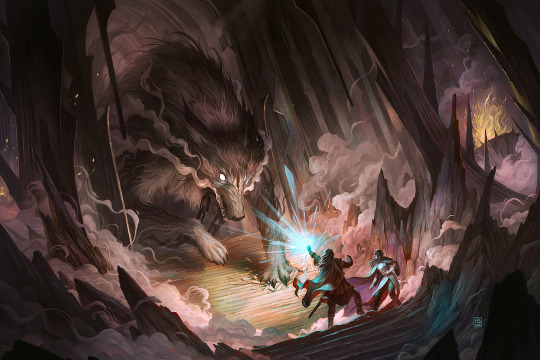

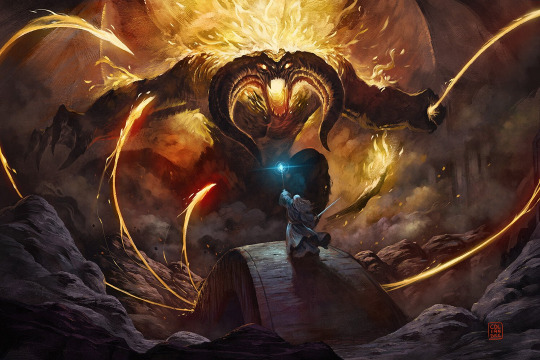
Tolkien art by Xavier Collette
#tolkienedit#lotredit#silmedit#fantasyedit#the lord of the rings#the silmarillion#carcaroth#beren and lúthien#balrog#gandalf#witch-king of angmar#éowyn#middle earth#j.r.r. tolkien#fantasy#art#my edit
533 notes
·
View notes
Text
a teaser you wanted, a teaser you’ll get ;)
“ [...] Carcharoth’s venom… I know mortals can never be compared to the Eldar when it comes to what they can endure, but… I remember nothing of the weeks I was walking the very edges of life. Nothing but pain, and fear. It was not death I feared, it was… something looming just out of sight, something terrible, like a fell beast, a monster of Morgoth’s breeding like Carcharoth himself. I wanted to flee, but couldn’t. Every breath I took felt as if it were tearing my lungs and the stump of my arm felt as it were constantly pressed into white-hot embers. I welcomed death, but death was merciless and did not take me on. There was only one thing that made me fight, that made me endure it, and that was Lúthien’s light, her love. Her touch was like cooling water. She kept ever close to me, never leaving my side, and that was what saved me in the end.”
-from my WIP (obviously). But the better version, not the one I was so happy about finishing yesterday (yeah, two-version-fic, the logistics of posting that will be challenging)
#silmarillion fanfiction#of beren and lúthien#canon divergence#how i'd have written it#the wolf and its prey#teaser#ao3#very sorry professor#I know that's bordering on sacrilege#yes they both live#screw the choice#no parent should bury their child#who said death could be a gift only to men?#I'll stop putting any more cryptical tags on now
0 notes
Text

Tinúviel was dancing there to music of a pipe unseen. And light of stars was in her hair and in her raiment, glimmering.
#water sleeve dance is the only correct choice for lúthien's dance in my mind#house of flying daggers is my biggest inspo for doriath and beren and lúthien aesthetics#just love beautiful cinematography with gorgeous costume design#beren and lúthien#lúthien tinúviel#silmarillion#tolkien#my art#art#artists on tumblr#artwork#illustration
1K notes
·
View notes
Text
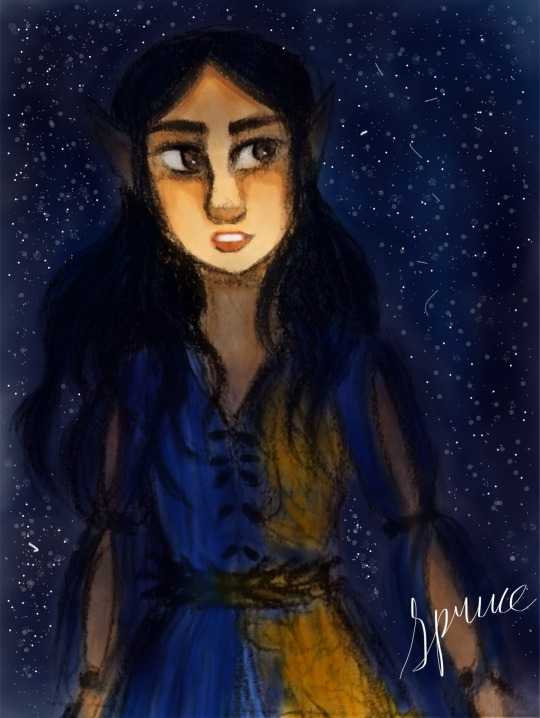
Lúthien
#myart#spruceart#drawing#tolkien fanart#silm art#tolkien#silmarillion#tolkien stuff#luthien#luthien tinuviel#beren and luthien#unfinished tales#silm elves#tolkien elves#lúthien#lúthien tinúviel#lotr elves
63 notes
·
View notes
Text
Lúthien comes of age in safety and love. Her father rules in kindness and her mother shields the land from evil.
Dior comes of age in a time of unease. His father is strong and brave, his mother wise and bold, but the Fëanorians are a threat that ever hangs over his head.
Elwing comes of age in Valinor with her husband by her side and a trail of loss and woe behind them. Her sons are taken and her people are dead. The weight of responsibility is nearly enough to crush her.
Eluréd and Elurín do not come of age, they never had the chance.
Elrond and Elros come of age in a war zone. There is death and screaming, blood spills as often as rain. They have no parents, only each other. The world has never been safe for them. They know it never will be.
Elladan, Elrohir, and Arwen come of age in safety and love. Their mother is kind and wise, their father shields the land from evil.
#silmarillion#peredhil#eldritch peredhil#elrond peredhel#lúthien#melian the maia#elu thingol#beren#dior eluchil#elwing#elured#elurin#elros#eärendil#elladan#elrohir#arwen undomiel#generational trauma#hc that peredhil come of age at 40#elwing and eärendil were 35 when the third kinslaying happened#dior is an exception#he's only a quarter elvish so he ages faster
1K notes
·
View notes
Text
I was researching something completely unrelated but I passingly saw that hemlock means mortality in Victorian and modern flower language. And my brain immediately thought of the ‘Song of Beren and Lúthien’ in FotR, specifically the first stanza:
The leaves were long, the grass was green,
The hemlock-umbels tall and fair,
And in the glade a light was seen
Of stars in shadow shimmering.
Tinúviel was dancing there
To music of a pipe unseen,
And light of stars was in her hair,
And in her raiment glimmering.
Hemlock is the third element im the description of the glade Lúthien is dancing in, even before we learn her name. We have the long leaves, the green grass and the tall hemlock; two elements traditionally associated with spring and youth, and one heavily associated with death. In two verses we know everything there is to know about Lúthien: she’s youthful and she’s going to die.
The hemlock appears again in the second stanza:
There Beren came from mountains cold,
And lost he wandered under leaves,
And where the Elven-river rolled
He walked alone and sorrowing.
He peered between the hemlock-leaves
And saw in wonder flowers of gold
Upon her mantle and her sleeves,
And her hair like shadow following.
This stanza is from Beren’s point of view, looking at Lúthien. And fact he looks at her through the hemlock leaves tells us he is mortal. Beren looks at Lúthien through the lens of a mortal gaze, and thinks her otherworldly. There is an added layer to it because, in Victorian flower language, hemlock not only means mortality but also more specifically ‘you will be my death’. And, indeed, Beren dies in his quest to obtain Lúthien’s hand.
The last occurrence of hemlock in this song is in the fourth stanza:
He heard there oft the flying sound
Of feet as light as linden-leaves,
Or music welling underground,
In hidden hollows quavering.
Now withered lay the hemlock-sheaves,
And one by one with sighing sound
Whispering fell the beechen leaves
In the wintry woodland wavering.
I find this stanza more difficult to analyse from a symbolic point of view since it’s mostly a description of autumn and winter coming, but it certainly puts emphasis on the importance of this plant in Beren and Lúthien’s story. As I interpret it, and this is my personal reading, it is an allusion to Beren and Lúthien growing old together and Lúthien choosing to die along Beren.
In The Tale of Tinúviel, the hemlock is also extremely important in the introduction of Tinúviel, and it is more or less a description in much more details of what is hinted at in the Song of Beren and Lúthien from FotR. I can’t put the quote because it’s in French but, very roughly, it says that the hemlock is so tall and dense it looks like Tinúviel is dancing on a white cloud. Then, when Tinúviel sees Beren, she hides under a very tall hemlock and her white dress makes her disappear in the hemlock, looking like moonlight on the flowers. The imagery used in this scene is absolutely beautiful and I can’t make it justice, but what is important is that, upon their first meeting, Tinúviel is metaphorically surrounded by mortality. She is an Elf yet she will die. And Beren, who is an elf too in this version (a Gnome, the proto-Noldor, and I struggle not to picture him as a garden gnome), is doomed to die too from the moment he walks amongst the hemlock in search of Tinúviel.
Last but not least is the Lay of Leithian. Sadly, I don’t have the full Lay of Leithian so I can’t look at the meeting scene but, in an extract given in the French translation of Beren and Lúthien (Christian Bourgois, 2017) it is said that Lúthien wears white roses in her hair (Canto VI, verses 116-117) and there are a few other mentions of unspecified white flowers. White roses mean ‘I am worthy of you’, withered white roses mean ‘transient impressions’, white rosebuds mean ‘girlhood’ and a crown of roses ‘reward of virtue’. I don’t really know what to do with these informations since I don’t have the original text so I can’t say how accurate the translation is, but all of this enhance Lúthien’s ethereal, eternally youthful appearance. It also shows the association of Lúthien with white and light in opposition to Morgoth’s black darkness, I think. But I don’t doubt for a second that the hemlock is an important part of the place where Beren and Lúthien’s meeting.
Anyways, I just love digging this kind of rabbit holes in Tolkien’s poetry, because it gives us so much insight on the characters, and I am almost sure that Tolkien, who grew up in late Victorian England and loved nature, knew of the meaning of hemlock or he wouldn’t have insisted so much on it. I’d love to see if there is a paper out there about flower language/symbolism in Tolkien’s work because I am sure there is so much more of it than what I looked at today.
Sources:
https://tolkiengateway.net/wiki/Song_of_Beren_and_L%C3%BAthien
https://www.gardeningchannel.com/flower-meanings-dictionary-from-a-to-z-the-secret-victorian-era-language-of-flowers/
J. R. R. Tolkien, Beren et Lúthien, Christian Bourgois, 2017
And as a bonus, the Song of Beren and Lúthien in music by Clamavi de Profundis: https://m.youtube.com/watch?v=11_aneHVaz8&list=PLR5qYNG5Nf7WFbZ6wr-rr7gDnALA4C8mQ&index=19&pp=iAQB8AUB
youtube
#tolkien#the silmarillion#lay of leithian#beren and luthien#the lay of leithian#the tale of tinúviel#beren#lúthien#lúthien tinúviel#flower language#hemlock#lotr poetry#tolkien song#tolkien meta#half baked ramblings by a sleep deprived tolkien fan#Youtube
59 notes
·
View notes